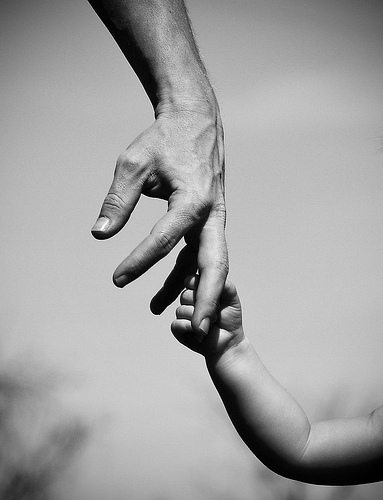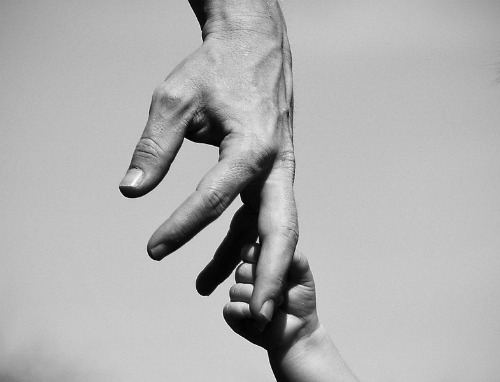 Photo: jrodmanjrLast month, Lisa Hymas posted a list of eight things all of us can do about population. It was a great roundup (my favorite was No. 4), but I’d like to add an item:
Photo: jrodmanjrLast month, Lisa Hymas posted a list of eight things all of us can do about population. It was a great roundup (my favorite was No. 4), but I’d like to add an item:
If you really want to be a parent — that is, if you’d like to help guide and shape and unconditionally love another human being, and you’re OK with sleepless nights, no time for novels, and very little alone time with your partner — consider adopting.
I have nothing but respect for my GINK brothers and sisters. I think it’s important to say (out lout and often) that it’s OK to choose not to have kids. Not only is it OK (and, if I’m remembering correctly, a heck of a lot of fun) to be childfree, it’s also good for the planet in a lot of ways. Plus, you can get more done at work.
Certainly, as Lisa has mentioned in previous articles, there are ways to be part of a child’s life without the responsibility and full-time commitment of parenting. But the thing is, a lot of people — let’s call them GIWKs, as in green inclinations, want kids — would actually find that responsibility and full-time commitment fulfilling. The other thing is, caring about the future of the planet, and specifically, about controlling human population, doesn’t automatically preclude parenting.
Right now, there are almost half a million children in foster care in the United States. Slightly less than a quarter of them are legally available for adoption. If each one of those children was adopted by a GIWK (not sure of just how to pronounce that) on the fence about procreating, we’d make a pretty decent dent in that problem — and in a lot of others.
Last year, almost 30,000 children turned 18 and “aged out” of the foster care system without ever having found an adoptive family. Most of these young people found themselves homeless and jobless and turned to crime at rates significantly higher than their peers. From The Christian Science Monitor:
The vast majority of young people who age out of the foster-care system struggle to find housing and jobs and to complete their education, according to a new study released Wednesday, which tracked hundreds of foster-care youths from age 17 and 18 through age 23 or 24.
Among some of the more sobering findings:
- Only 6 percent of those surveyed had finished a two- or four-year college degree by age 24, and nearly one-quarter did not have a high school diploma or GED.
- Nearly 60 percent of the young men had been convicted of a crime.
- Only 48 percent were working, compared with 72 percent of their peers who hadn’t been in foster care. For those working, the median income annual was just $8,000.
- Nearly 40 percent had been homeless or had “couch-surfed” since leaving foster care, and three-quarters of the young women had received public assistance in the last year.
Imagine the impact on our cities if those kids had found stable, loving families before (preferably long before) they turned 18.
And imagine the impact on the kids.
Children in foster care “have been removed from their birth family homes for reasons of neglect, abuse, abandonment, or other issues endangering their health and/or safety.” Foster children become available for adoption when the parental rights of their birth parents are terminated by the state. A child who has suffered in these ways is likely to benefit immeasurably from simply being loved.
Many of us think of adoption as a “last ditch” choice — one that we make if we have exhausted all of our options to have a child biologically. But adoption can also be viewed as a very intentional way to create a family. Adopting a child from foster care means choosing to open your home to someone like Brian, one of the many kids featured on the weekly television segment, Wednesday’s Child:
Brian has dreams of guarding the streets as a police officer when he is older. He is a very mature young man, has a great sense of humor, and gets along well with his peers. In school, he enjoys math, science, and recess. During his spare time, he likes to play video games, sports, and watch movies. His ideal day would include eating at McDonald’s and watching wrestling. In the future, Brian would like to be very successful and have LOTS of money.
When talking to Brian, he agrees that you must use teamwork in a family. While Brian has many goals for the future, his current goal is to find a family to which he can belong. He would like to have a family that will be there to support his goals, dreams, and aspirations. Will someone add him to their team?
What could be more intentional than adults who really want a child opening their home to a kid who really wants parents? And — for those of you who’d prefer to parent from infancy — we’re not just talking about big kids. Some children enter the foster care system immediately after birth.
In most states, adopting a foster child is legal (even encouraged) regardless of marital status, age, or sexual orientation. There aren’t long waiting lists. And, unlike private adoption, it’s not horrendously expensive. And so, my GIWKs, you have an alternative. Foster adoption is a good choice for the planet, for the families it creates, and for the health of our communities. It’s the ultimate happy ending.



